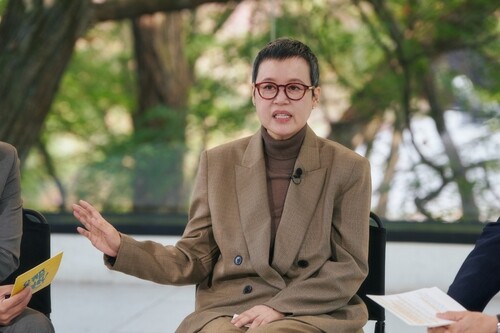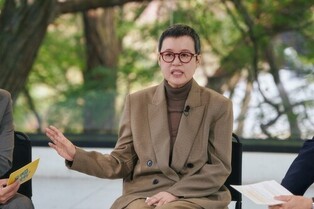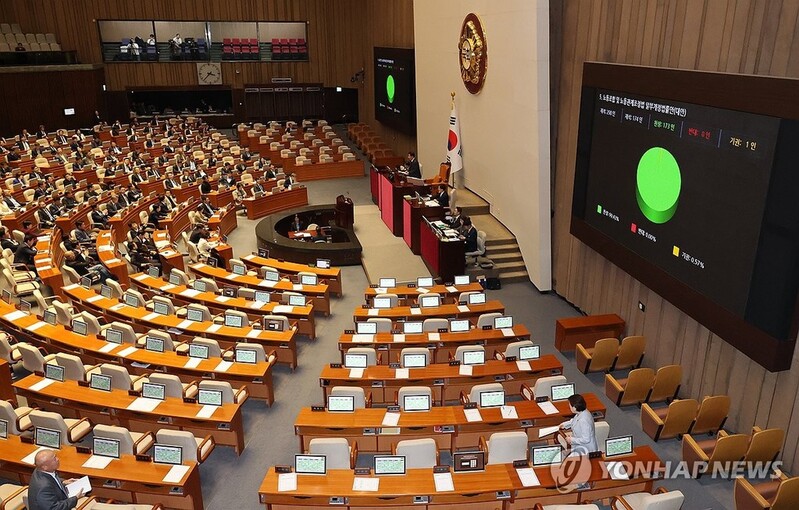 |
| ▲ A screen shows the number of ballots cast for the revision to the Trade Union and Labor Relations Adjustment Act, also known as the "yellow envelope bill" in the Plenary Chamber of the National Assembly in Seoul, on Nov. 9, 2023. (Yonhap) |
(LEAD) rival parties-contentious bills
(LEAD) Opposition unilaterally passes contentious pro-labor bill after PPP withdraws filibuster plan
(ATTN: RECASTS throughout with more updates)
By Kang Jae-eun
SEOUL, Nov. 9 (Yonhap) -- The opposition-controlled National Assembly passed a pro-labor bill and three other contentious measures Thursday after the ruling People Power Party (PPP) called off its plan to use a filibuster to block their passage.
The main opposition Democratic Party (DP) and other minor parties voted to pass the revision to the Trade Union and Labor Relations Adjustment Act and the three other bills on broadcasting laws after PPP lawmakers boycotted the votes in protest.
The bills' passage came much earlier than expected as the PPP decided not to use a filibuster because the tactic will leave the National Assembly open for the next few days and give the DP a chance to pass another contentious motion to impeach the country's broadcasting watchdog chief.
Earlier in the day, the DP proposed the impeachment motion against Lee Dong-kwan, chief of the Korea Communications Commission, and by law, the motion should be put to a vote between 24 to 72 hours after it was reported to a plenary session.
"We decided not to pursue a filibuster," said Rep. Yun Jae-ok. "The PPP hopes people can understand that we are in a situation where we have to give up the filibuster to stop (the Democratic Party's) bad political intentions to incapacitate the state broadcasting watchdog for a prolonged period."
Despite the bills' passage, President Yoon Suk Yeol can exercise his veto power against them.
In that case, two-thirds parliamentary support is necessary to override a presidential veto. That means the DP needs the support of at least 199 lawmakers in the 298-member National Assembly to reapprove the bill, but the party does not have enough members and sympathizers.
Yoon has previously rejected two opposition-led bills -- a nursing act aimed at stipulating the roles and responsibilities of nurses and a revision to the Grain Management Act, which required the government's purchase of surplus rice.
The pro-labor legislation, better known as the "yellow envelope bill," aims to limit companies from making claims for damages against legitimate labor union disputes, while the broadcasting law revisions are intended to reduce the government's influence over public broadcasters.
Business lobbies and the ruling party have strongly opposed the labor bill, arguing that it would make it difficult for employers to file complaints against illegal strikes by their workers and exempt laborers from liability for participating in illegal strikes.
The controversial bill dates back to 2009, when unionized workers of carmaker SsangYong Motor Co. staged a high-profile strike to oppose a massive layoff. Five years later, the Supreme Court declared the strike illegal and ordered the workers to pay 4.7 billion won (US$3.6 million) in compensation to the company and the state.
A number of civic activists and citizens have since delivered yellow envelopes, each containing 47,000 won in donations, to support the SsangYong workers, raising the need to amend the trade union law in favor of striking workers. The revision has since been nicknamed the "yellow envelope bill."
(END)
(C) Yonhap News Agency. All Rights Reserved

















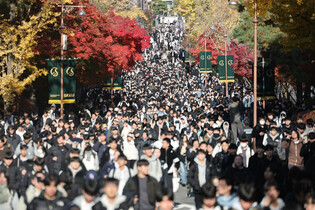



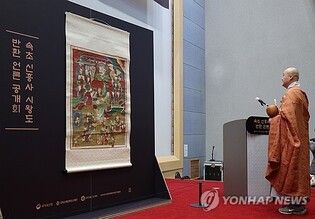

![[가요소식] 조항조, 새 싱글](/news/data/20251116/yna1065624915927473_582_h2.jpg)






